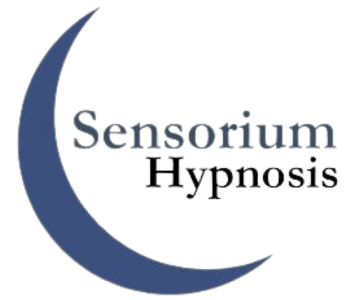Today I will explore the topic of anger and why having too much or too little is ultimately harmful to your emotional and physical health. I’m Amy and I help adults overcome the impact of childhood trauma. What I’m about to share is based on the hundreds of clients I’ve seen in my space over the last decade.
From what I’ve experienced, the cumulative impact of years and years of displaced or untamed anger often leads to physical distress or medical conditions through self-destructive behaviors like overeating, alcoholism, or other forms of self-sabotaging behavior – which is like taking the anger and turning it inward. On the other hand, there is another personality type who refuses to give anger a voice or an outlet, and this pattern of repression often leads to autoimmune disease, chronic fatigue/pain, or other mysterious physical symptoms.
Physical symptoms can be as subtle as an intermittent, temporary body rash or as disruptive as gastrointestinal issues or pain syndromes that keep a person in bed for days or weeks. The connection between anger and the physical manifestation of unhealed trauma is often entirely missed. Many times, clients seek hypnosis to “put out the fire” not realizing the cause of the fire is emotional in origin.
No matter how anger is “mismanaged,” this kind self-destruction or repression disconnects a person from their intuitive self, creates patterns of emotional or physical isolation, fuels distrust of oneself and others, and can promote false assumptions and dark projections about the outer world and their own future. Much of this happens on a subconscious level through thoughts, beliefs, feelings, and unenlightened behaviors.
If you think about this, it makes sense that some people with trapped anger would engage in unhealthy lifestyle practices or experience physical distress after years of feeling disconnected from love, support, and compassion. It is notable to mention I have never worked with a client struggling with “too much” behavior who does not suffer from unresolved anger. They may be angry at themselves, angry at someone else whom they blame for their situation or a combination of both.
Clients typically explore hypnosis by default, once they realize western medicine and mainstream protocols have their limitations and will ultimately never be enough to keep their issues at bay. After further education and exploration, they become more open to the notion that impulsive and self-destructive behaviors, as well as unresolved chronic conditions represent trapped emotions and unhealed trauma. Moreover, they begin to understand that without addressing the emotional body, it is unlikely their impulsivity and/or physical symptoms will reach a level that feels manageable or perhaps even completely resolve.
As I share more on this topic, I am reminded of a client who relocated to the Seattle area to pursue a romantic partnership, while simultaneously taking on the demands of a new corporate position. The pressures of this radical transition, as well as the decision to leave behind an emotional support system and social network, and a “perfect” climate, sparked deep depression, anger, and patterns of overindulgence. She came to me at her heaviest weight, angered and overwhelmed by this high responsibility, over-taxiing lifestyle. She had also recently been diagnosed with autoimmune disease, and the fatigue and chronic pain made it challenging for her to balance her new roles.
After months of seeing medical specialists and talk therapists with little progress, few answers and no significant changes, she reached out to me for help identifying the root cause of her troubling symptoms and find a formula for that would offer her relief. For the first time ever, in my hypnosis chair, she gave her inner child a voice and permission to have feelings, needs, and desires. She gave herself permission to feel angry at having thrust herself into an unbalanced relationship with little respite and no authentic power.
Here’s what this client had to say, “I found Amy when I was in the throws of a sudden illness that came at me hard and fast. I’m happy to say that I no longer suffer from what was going on with me then.”
This client has since manifested a new career path creating more opportunities for life/work balance, friendships, travel, and access to warmer, sunnier climates. She has disentangled from unhealthy patterns of chronic “people pleasing” and self-denial – which after further exploration came from a combination of childhood trauma and earlier relationship patterns. This new formula for life successfully lowered the volume of her symptoms and “too much” behavior. And the wisdom from our work will continue to unfold for months and likely years following our sessions.
There was another client who sought help during an autoimmune crisis. Her mother essentially showed up on her doorstep, ill, financially destitute, and alone expecting her adult daughter whom she had abandoned to assume a caregiving role. My client was confused, overwhelmed, and angered by her mother’s arrested emotional development, self-centeredness, and utter disregard for her daughter’s physical and emotional wellbeing.
She struggled with a lifetime of repressed anger, now further triggered by her mother’s expectations which ultimately created this storm of autoimmune symptoms. Mainstream interventions had failed her, and she was desperate. She needed to give her trauma-self/inner child a voice to express the injustices she had faced, permission to establish clear boundaries, and an opportunity to redefine the relationship with her mom in a way that reflected self-compassion. Here’s what this client had to say following hypnosis, “my physical health started declining severely due to an overload of emotional stress…Amy streamlined the process and got right to the root of my issues allowing me to start healing immediately.” Again, this further highlights the importance of addressing underlying emotional etiologies as a tool for alleviating physical symptoms.
Now let’s consider another type of person who refuses to give herself permission to express anger or other truths about her childhood trauma. I have found many adult children of addicts, or abusive/neglectful parents are resistant to exploring their feelings about the past openly and honestly. This may be related to religious beliefs and/or beliefs about parent/child roles and the fear that expressing anger represents disrespect or betrayal. In other cases, a client may fear that being this honest with herself would be too much to bear emotionally and would drive a deeper wedge between an already strained adult child/parent relationship. Add in grandchildren, and the fear deepens that their parents may then reject or abandon their kids.
Here’s a story of a female client who spent over 20 years of marriage in complete service to her husband and her children. While her husband lived the life of his dreams, she sacrificed everything – her career, family and friends, identity and eventually her emotional and physical health. This pattern of living self-sacrificially was a learned behavior from her childhood and she seemed to attract partners who came to expect this. She had never allowed herself to share her feelings with her husband about his indiscretions, overindulgent lifestyle, and his lack of participation as a husband and father. Instead, she self-medicated her anger, feelings of abandonment and lack of freedom through food and alcohol. She fell into a deep depression and described herself as having a complete emotional breakdown which led to a very contentious divorce and severe physical illness.
This is the negative cumulative impact of sweeping unhealed trauma under the rug. Often times, we perpetuate this cycle by making excuses for a parent or downplaying the impact of addictions, abuse or neglect. In essence, this communicates to the inner child that feelings aren’t important, can’t be trusted, and should not be shared or displayed. Whereas this defense mechanism may keep you emotionally and physically safe as a child, this continued pattern of repressing, questioning, or quieting your feelings creates more dire consequences throughout adulthood.
Hypnosis gave my client a safe forum to explore past trauma, unhealed wounds, and repressed anger. She shared this, “After decades of abuse…I am so much stronger and even able to see harmful relationship patterns in my life and …am strong enough to let go…” She now lives independently, returned to college, and continues her journey toward improved physical health. This, my friends, is how many people overcome decades of unsatisfying, unnourishing, or emotionally parasitic marriages, friendships or work relationships. This is the intervention that empowers clients to trust their intuition and restores feelings of self-compassion, self-worth, and self-confidence.
What’s fascinating about inner child work is that instead of experiencing paralyzing anger and irreparably damaged relationships, the exact opposite often occurs. Here’s what one client had to share, “the resentment I had towards a person (mother)…not only disappeared, but also I became appreciative of her and often feel I am not doing enough…” It is this process that helped my client access genuine compassion for her offender. Her thoughts, feelings and choices were now aligned with the authentic self, rather than coming from the trauma self, who was stuck in a place of anger and unhealed resentment. What a gift this is for the evolution and advancement of both souls!
I understand that sometimes the best pathway to healing is for a client to leave the offender behind emotionally and/or physically. However, giving the trauma self/inner child a voice and allowing the higher self to make spiritually/emotionally grounded choices has tremendous positive long-term implications. As you repair discrepancies in thoughts, feelings, and behaviors deeply rooted in repressed emotions and childhood trauma, you free yourself from a lifetime of self-limiting beliefs, self-sabotaging behaviors, and unhealthy relationships patterns. Also, restoring the emotional body to a state of quietude creates fertile ground for the physical body to return to a level of optimal function.
Click here to stay informed through my newsletter and receive a FREE MEDITATION TUTORIAL: https://mailchi.mp/32efe1131972/new-subscriber-meditation-video-offer
#angermanagement #energyhealing #hypnosis #healingpractices #selfimprovement #emotionalfreedom #rootcause #selfhealing #mindbodymedicine

